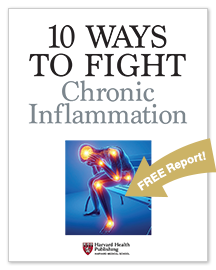Laugh and be thankful—it’s good for the heart
One of the things I like most about Thanksgiving is the laughter around the dinner table. The food is great, make no mistake. But it’s the sounds of happiness—the high peal, the good-natured guffaw, the snort-and-shaking-shoulders, and the deep belly laugh—that really make me give thanks. Laughter isn’t just a way to stay connected with family and friends. If new research pans out, it is also doing our hearts some good.
From brain scans and other tests, neuroscientists are compiling evidence that laughter triggers chemical responses in the brain that lead to feelings of pleasure and a sense of well-being. Laughter also appears to go beyond the belly and the brain—arteries respond to it in healthy ways that could improve blood flow and long-term health. (I’m talking about “mirthful” laughter here, the kind sparked by a funny story or a Billy Crystal routine. Sarcastic or other kinds of unfriendly or hostile laughter are a different story.)
At the University of Texas, Austin, researchers asked 17 healthy adults to watch a humorous 30-minute video of their choosing or a documentary, with before and after tests of blood flow. The biggest differences between the two groups were in measures of artery function (a test called flow-mediated dilation) and flexibility (the carotid artery augmentation index). These improved immediately in the volunteers who watched a comedy and stayed that way for almost 24 hours. In those who watched a documentary, though, artery function decreased a bit.
This study builds on work done by cardiologist Michael Miller and his colleagues at the University of Maryland Medical Center. They have demonstrated similar improvements in artery function after laughing at a comedy.
Why this happens is all speculation. Miller and William Fry, a psychiatrist at Stanford University School of Medicine who began studying the effects of laughter on the cardiovascular system in the 1970s, hypothesize that brain chemicals called endorphins, which are released during mirthful laughter, latch onto opiate receptors in the lining of blood vessels. This interaction stimulates blood vessels to release nitric oxide, a molecule known to relax arteries. Relaxed arteries are more flexible and wider, permitting easier blood flow.
It’s a long way from laboratory measures of improved artery function to better health and longer life. That’s why you can’t rely on laughter as your only medicine. And a laughter prescription might not be as much fun as it sounds. Instead, enjoy laughter when it comes and bless it as another thread in the web of connections that help keep us happy and healthy.
About the Author

Patrick J. Skerrett, Former Executive Editor, Harvard Health Publishing
Disclaimer:
As a service to our readers, Harvard Health Publishing provides access to our library of archived content. Please note the date of last review or update on all articles.
No content on this site, regardless of date, should ever be used as a substitute for direct medical advice from your doctor or other qualified clinician.















